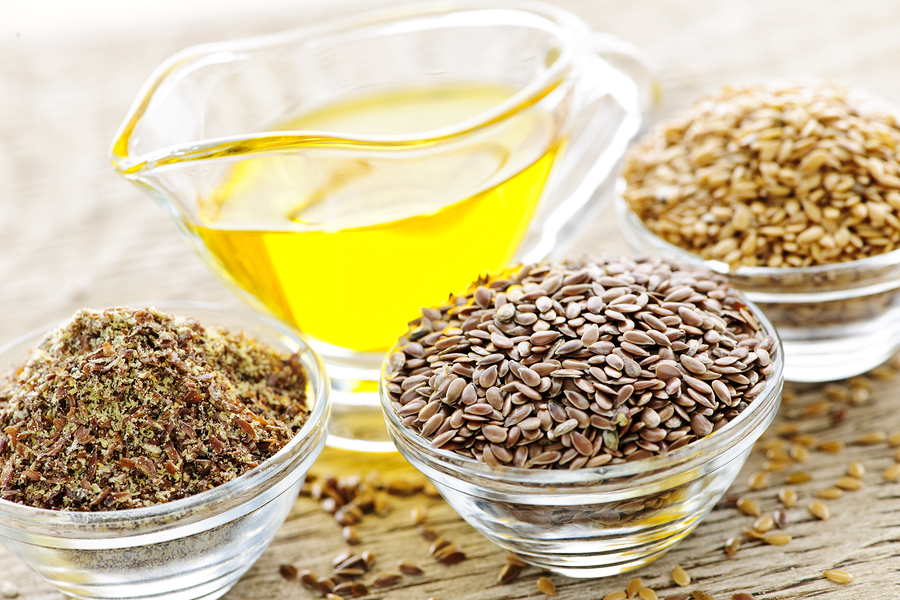- Make It Yourself Lavender Heart-Shaped Bath Bombs!
- 20 Things You Never Knew About “Down There”
- 12 Best Foods For Those Suffering From Arthritis Pain
- 12 Personal Hygiene Mistakes Almost Everyone Makes (Mom Never Told You About #4!)
- 15 Medicinal Plants And Herbs From The Cherokee People
- 12 Mind-Blowing Benefits Of Drinking Coconut Water During Pregnancy
- 12 Outstanding Winter Foods That Won’t Fatten You Up Like A Christmas Turkey
11 Natural Remedies To Stop IBS (#7 Is Surprisingly Effective)

Photo credit: bigstock.com
Do you suffer from irritable bowel syndrome? This is a common condition that many people struggle with. Think you’re alone?
Statistics show that one in every 10 American adults show symptoms of IBS, filling about 35,000 hospital beds each year. It is the second biggest cause of calling in sick from work, right after the flu.
Don’t confuse IBS (irritable bowel syndrome) with IBD (inflammatory bowel disease). IBD is an autoimmune disease that has very dire consequences, including debilitating pain. However, with IBD, the bowels are completely functional.
How can you tell if you are actually suffering from IBS and not something else?
Common symptoms are:
- Abdominal pain
- Boating
- Excessive gas
- Constipation
- Diarrhea
- Spastic colon
Most doctors will prescribe you antispasmodics and antidepressants for IBS, but there are other alternatives. Rather than simply address the symptoms, which is what these drugs are doing, you can address the root cause.
Keep reading: We have 11 of the best ways to help address IBS and stop the craziness that it causes.
1. Peppermint
Herbal treatments are always one of the best options for treating almost any physical ailment. Peppermint calms the muscles in the colon, which is the main cause of diarrhea and the abdominal pain. Drinking a cup of peppermint tea after each meal can go a long way toward helping your symptoms. You can also try sucking on peppermint candies. There are peppermint extract supplements, but you should consult with an herbalist, who can advise you as to the proper dosage.
2. Ginger
Ginger is known to help with all kinds of stomach and digestive problems, including gas and bloating. Ginger reduces inflammation in the body, which can lead to several of the IBS symptoms. Drink a cup of ginger tea after each meal or suck on ginger candies. Like peppermint, there are also ginger extract supplements, but please consult an herbalist before consuming them.
3. Don’t Forget Fiber
Consuming fiber can be extremely helpful when it comes to addressing IBS symptoms such as the bloating, diarrhea, and constipation. Fiber supplements that contain psyllium are the most helpful. Psyllium is a type of adaptogenic fiber. This means it will adjust the amount of water it draws to your stools so that you don’t have hard stools that are difficult to pass, and that you don’t have diarrhea. Be certain the psyllium you buy is organic.
4. Carrots
Carrots never reach the colon undigested, and they are great natural remedies for constipation. Although the exact amount needed varies from person to person, start with one cup of fresh, sliced carrots or one cup (eight ounces) of carrot juice. If this isn’t sufficient, then add a half cup more each day until the desired results are obtained.
Continue to Page 2

Photo credit: bigstock.com
5. Flax Seeds
Most people find that consuming flax seeds helps to improve their IBS symptoms. Flax seeds contain omega-3 fatty acids. They are also a great source of fiber. Flax seeds need to be ground in order for them to release their nutritional power. Buy fresh flax seeds and use your spice or coffee bean grinder to grind up two tablespoons each day. Sprinkle the powder over your yogurt or oatmeal or add it to a smoothie to get some major relief from your symptoms.
6. Bananas
If you suffer from diarrhea most days, eating just two large bananas each day can stop this annoying symptom. Bananas are high in potassium, which help to prevent bouts of diarrhea.
7. Acupuncture
This is a super popular alternative for people suffering from IBS. It has been proven to be very effective when treating chronic pain, bloating, and most of the other symptoms. Be certain that you see a certified acupuncture specialist. Speak with your doctor for a referral.
8. Avoid Gluten
Most people with IBS have sensitivity to gluten. One of the first things you should try is to go on a completely gluten-free diet for 30 days. For many people, just doing this relieves almost all their symptoms. Avoid gluten in all its forms including wheat, rye, barley, spelt, and oats. If this doesn’t affect your symptoms, then try some of the other remedies listed in this article. Keeping a food diary for several weeks will help to pinpoint the trigger foods for you. Everyone is different and what upsets some people does not bother others. Don’t rely on what some book tells you — always listen to what your body tells you. By keeping a food journal and then noting your symptoms afterwards, you might be able to identify food sensitivities, food allergies, or food intolerances that are behind your IBS.
9. Oat Bran
If you don’t have sensitivity to gluten, then you can try oat bran. This is a super high fiber food that helps to control many of the symptoms of IBS and can regulate bowel movements. The high fiber content can also help to smooth out spastic colon.
10. Probiotics
Anyone who suffers from IBS should be consuming lots of healthy probiotics in their diet. The best sources come from yogurt, kefir, pickles, miso, kombucha, sauerkraut, and other fermented foods. Eat at least some probiotic rich foods every single day. There are also probiotic supplements, but speak with your doctor about which kind and the proper dosage for your unique situation.
11. Address Emotional Issues
Many people who suffer from IBS also have unresolved emotional issues in their lives that contribute greatly to this problem. This is why most doctors immediately prescribe some type of antidepressant. You might want to think about taking up yoga, practicing mediation, or getting some type of therapy to help settle any emotional issues you might be dealing with or that have gone unresolved for a period of time.
READ ALSO: Top 6 Reasons Why You Have Digestive Issues And How To Fix Them
Irritable bowel syndrome is difficult for most people to deal with alone. Join a support group in your area. If you cannot find one, you might be able to join online support groups. Don’t suffer in silence. There are many others who suffer from this problem. It always helps to have emotional support from people who truly understand what you are going through.
References:





























Anto
Mar 17, 2016 at 8:15 am
Bone broth – that’s a very effective treatment for irritable bowel and IBD. Take 2-3 cups every day to soothe the gut and overcome constipation.